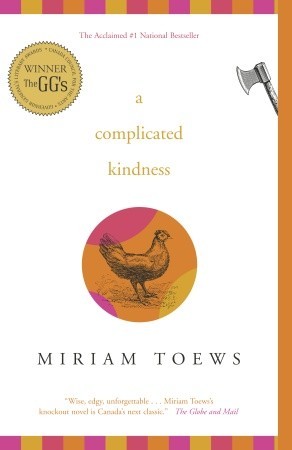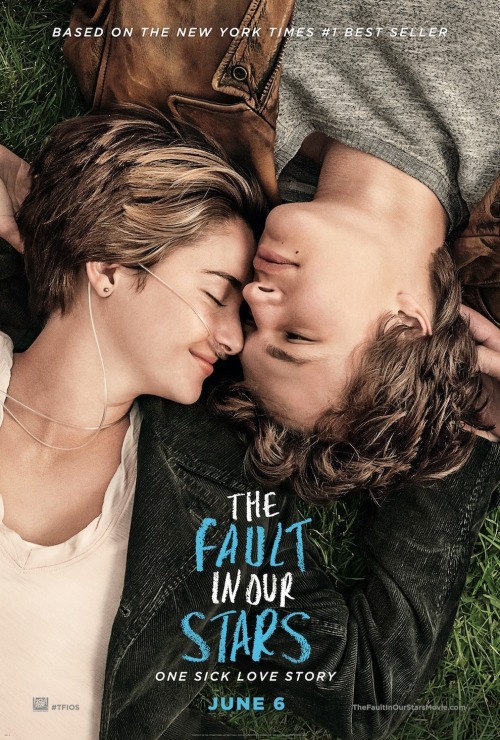Hello hello!
Did you miss my opinion pieces? I hope so, because a
n article that has been rattling around the internet got me thinking about what makes us love YA so much. I'll try to avoid spoilers for
The Fault in Our Stars and
Looking for Alaska by John Green, but I will be touching on many other books, so general
SPOILERS SPOILERS SPOILERS
may lie ahead. So, let's get started.
What the hell is "YA", or "Young Adult" fiction anyway?
Adults love YA too, even though "young adult" fiction stars teenagers and is basically just an age category for marketing purposes that encompasses all lit targeted towards teenage audiences. I argued with some friends about whether YA should be a genre recently, and ended up agreeing that, no, it isn't and shouldn't be considered as such, although "Coming of Age" stories or "Bildungsroman"
are, and should be marketed as a genre more often. The reason for this is that YA is just too damn diverse. It has some common elements--teenage characters, often girls, as protagonists, a setting in high school, a focus on personal drama, and elements that involve maturation or struggling with meaning. Existential elements and slightly simplified prose are very common.
If you want to get technical, both
Life of Pi and
The Underlighters could be called "young adult" books because of their topics and the age of their main characters. Ultimately, though, calling something YA is a marketing decision. There are adult books with teen characters, such as the Idlewild trilogy by Nick Sagan,
Lullabies for Little Criminals by Heather O'Neill, and
Irma Voth and
A Complicated Kindness by Miriam Toews. Every single one of those could easily be called YA, but they weren't, and that just boils down to commercial reasons.
What's a "young adult", anyway?
The answer for this one is going to touch on something that we in North America at least, hate to talk about and also love to talk about. Namely, it's high school. We need to contextualize something about the modern understanding of youth, too--until the Victorian era, there was a hard definition between childhood and adulthood. You finished up a few grades of school and got sent into the working world, and boom, you were an adult. Then people started to realise that there was more of a transition between the snot-nosed childhood stage and the beer-breathed adulthood stage, and we created the
concept of the teenage years, or what's more correctly called "adolescence". Oh, sure, "youths" were recognized before that change happened, but they were still basically treated as adults. It was The Great Depression and the Second World War that created the concept of teenagerdom, and since then, we've been stuck with it.
Of course, that means people decided to make money from young adults as well, and teenagers have been a targeted marketing group ever since.
So why do adults care about books for teenagers?
There's this myth is North America, at least, that what happens in your childhood and adolescence doesn't matter. Bullied? "You'll get over it." Your friends and crushes will drift away, buried in the backyard of your mind like so many Barbie heads and Hot Wheels toys lost in sandboxes.
Well, it's just not true. Yes, time does heal wounds very effectively, and memory is much less certain than we think it is--you can create memories by talking about them and believing in them, and
they change a little every time you recall them. And of course, stuff that happens in the first eighteen or twenty-odd years of your life doesn't just magically go away. However, people tell you that they're supposed to. It's strange, because old age is something not all of us live long enough to experience, but the formative years that almost all of us get to enjoy--nope, not important, shrug those off. Which leads me to my next point.
Adults are both in denial about their teen years and obsessed with them.
Frankly, it's a little weird. This early part of your life, which you'll "get over" and you're supposed to move past, is the focus for most stories. Many protagonists are young--hell,
A Song of Ice and Fire involves a whole bunch of characters under the age of twenty--but there's an expectation that maturity means putting high school behind you. That's reasonable, but people also tend to mention high school a lot and use it as a reference point. We're so busy telling people to put the past behind them that a lot of people don't deal with it properly, and the petty sins and small ghosts pile up after a while. Hell,
Looking for Alaska depends on the protagonist, Pudge/Miles, following in his father's footsteps to go to a boarding school precisely because his father remembers his experiences there so fondly.
Perhaps as a result of this, most protagonists are quite young, and their stories often feature a lot more resolution than real lives do. The boy/girl/tentacle monster that got away, the parental argument, the bad decision--all kinds of things that hindsight's blazing lamp illuminates--tend to be the focus for these young adult stories. However, the young adult characters often have a lot more power and self-determination than most people feel they had at the same period.
Basically, the YA characters get the best of both worlds--the adult's hindsight and the teenage freshness--partly because people hunger to live through their youthful experiences again but handle them the right way "this time". The way Hazel from
The Fault in Our Stars handles a particular adult certainly felt like a daydream of revenge against someone overly idealized. Gauguin said, "Life being what it is, we dream of revenge", and YA fiction is full of delicious, delicious revenge and resolutions. I actually heard about the Gauguin quote from
A Complicated Kindness, and that's a story where there really is no figure to seek revenge against, though arguably, Nomi still does take some.
We are obsessed with youth and undervalue adulthood.
For some reason, the period of time when people have little control over their lives, little self control, less money, and no experience is the time we think is the absolute best for adventure settings. Whether it's contemporary brushes with gang violence or leading an uprising against tyrannical totally-not-parental-figure leaders (et tu, my dear
Hunger Games?), young adult characters are smarter, better, and their lack of experience is generally understated compared to real life. However, teens both real and fictional do have a certain brashness and courage that real adults lack. Constant justifications about why certain things can't be done--some reasonable, some downright cowardly--control people's lives. After all, your abusive boss might be piling on extra work, but you have a family to feed, and you can't lose your job. Teenagers haven't learned about consequences yet and sometimes just don't care about them, and frankly, that's not always a bad thing. Sure, it can be, but there are times when stupid decisions are the best you'll ever make.
There's also this weird denial of death and youth-fetishization thing that happens in North American culture (possibly others too?) where the zits and other actual health problems people encounter during adolescence are ignored to focus on the easy beauty teenagers have. Their bad health habits haven't set in yet or haven't caught up to them yet, they're active, they try to look good and impress other people, and for that reason, adults look at their teenage children and neighbours, then look at themselves, and basically collapse in a puddle of envious self-loathing and hatred.
Adulthood is awesome.
This is very stupid. Adulthood has a lot of advantages, and giving up wonder, curiosity, and etcetera are not the required prices of admission. Sure, you know more, but that means that bigger and better questions can be asked. If one compares earlier twentieth century literature to current lit, there's a lot more maturity in the characters. Bilbo and Frodo, for instance, don't hit the road until they're out of their "mischievous" twenties. Both of them are
fifty when they go on adventures, and that's a stand-in for being forty. But because people tend to subtly hate and resent their lives, adolescence acquires a sort of golden patina. The angst and directionlessness are forgotten because the longing to go back to a time when everything was still new, when one had more freedom (regardless of how true that freedom was), tends to lure people back. It's nostalgia, and the problem with nostalgia is that it's a lie.
All of this sounds like a strong argument for adults to put down their YA books, but it's actually not. In Part 2, I,ll get down to the nuts and bolts of why "YA" books are getting a finger-wagging reprimand and thousands of ardent supporters at the same time, and why I think it's awesome.
Thanks for dropping by the nest once again. Don't miss any of the phuquerie. Find Michelle on
Twitter,
Facebook, and on
Tumblr, and find her work on
Amazon. Check back on the
blog to see when one of the irregular posts has careened onto your feed. This is the one and only SciFiMagpie, over and out!






